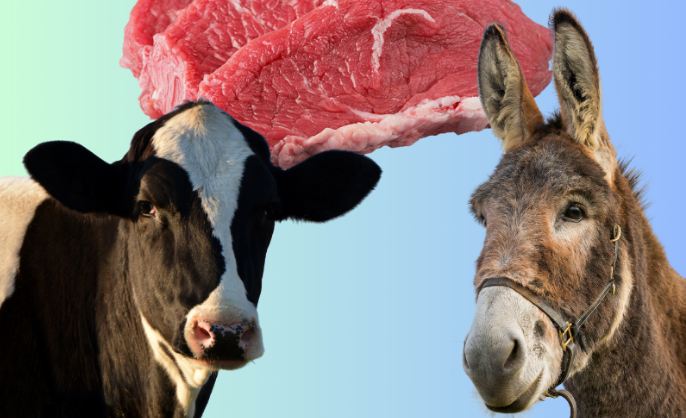ISLAMABAD: On July 27, a disturbing discovery was made just three miles from Pakistan’s federal capital—Islamabad Food Authority (IFA) conducted a major raid on an illegal slaughterhouse in Tarnol and recovered a shocking 1,000 kilograms of donkey meat, along with over 50 slaughtered donkeys.
This seizure has once again raised serious concerns about food safety, consumer awareness, and the growing illegal trade of donkey meat in Pakistan. As authorities investigate the full extent of the operation—reportedly connected to foreign exports—the public is left asking a crucial question:
How can we differentiate between donkey meat and cow meat before it reaches our plates?
In this blog, we’ll not only highlight the details of the Tarnol donkey meat bust but also explain what consumers should look out for—based on insights from veterinary experts and food safety officials.
Why this is serious problem
While some countries allow regulated trade of donkey meat and hides, Pakistan does not permit the sale or consumption of donkey meat for humans. The health, religious, and ethical implications of this trade are profound:
Religiously Haram: For the Muslim majority population in Pakistan, donkey meat is considered haram (forbidden) in Islam.
Public Health Risk: Meat from illegally slaughtered animals, especially without veterinary inspection, poses serious health hazards including disease transmission.
Consumer Deception: Donkey meat is often passed off as beef, deceiving consumers at butcher shops and roadside restaurants.
Veterinarian explains: How to Identify donkey meat
To help the public stay vigilant, veterinarian Dr Muhammad Ali provided essential tips for spotting donkey meat in the market or at eateries.
“It is not difficult to distinguish between halal and haram meat,” says Dr. Ali.
Here’s what you should look for:
- Color
Halal beef: Bright cherry red.
Donkey meat: Appears very dark red, with a bluish tint.
“Donkey meat is dark in color and has a blue shade,” Dr. Ali confirmed.
Courtesy: Online
- Smell
Cooked donkey meat has an unusual, strong odor, unlike the rich aroma of beef.
- Laboratory tests
ELISA Test: Detects animal-specific proteins.
PCR Test: Confirms the animal species through DNA analysis.
“If there is any doubt in a hotel or restaurant, ELISA and PCR tests of meat should be done,” Dr. Ali recommended.
What consumers should do
In light of these developments, consumers are urged to be cautious and proactive:
Buy from reputable sources
Always purchase meat from licensed butchers and trusted stores. Be wary of suspiciously low prices.
Be careful while eating out
Avoid small, unregulated eateries that offer unusually cheap beef dishes. If in doubt, ask for sourcing information.
Push for transparency
Urge local food authorities to conduct random meat inspections and publicly name violators.

















